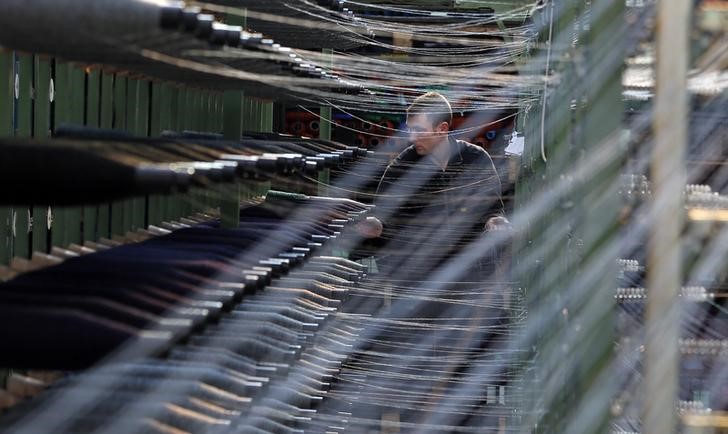DUBLIN, June 4 (Reuters) - Ireland's manufacturing sector grew in May at its slowest rate since the aftermath of Britain's vote to leave the EU three years ago as the impact of stockpiling fizzled out and new orders shrank, a survey showed on Tuesday.
Ireland's fast-growing economy has weathered the uncertainty created by the June 2016 vote, with the impact mainly showing itself in a ramping up of pre-production inventories ahead of the original end-March date for Britain's departure.
But the AIB manufacturing Purchasing Managers' Index (PMI) slipped for the third time in three months, to 50.4 in May from 52.5 in April, on the unwinding of stockpiling and weaker global demand.
That is the lowest growth rate since the 50.2 reported for July 2016. The new orders sub-index fell below 50, the point which separates growth from contraction, for the first time since July 2016.
The index "showed a further loss of momentum in the sector as the boost to activity from Brexit stockpiling earlier in the year continued to unwind," AIB Chief Economist Oliver Mangan said in a statement.
Anecdotal evidence from panelists indicated that many firms had reached their contingency stock levels for Brexit and due to weaker demand had decided to run-down supplies rather than purchasing additional inputs, he said.
Weaker global demand is also weighing on the sector, Mangan said, contributing to a fall in the employment growth sub-index to its slowest growth rate in almost three years.
The survey showed that business sentiment amongst Irish manufacturers had risen to its highest level in five months, however, with around 52% of firms confident of a rise in output from present levels in 12 months' time.
Panelists cited new product releases, a recovery in overseas markets and investments in new machinery as reasons to be confident, the authors said.
